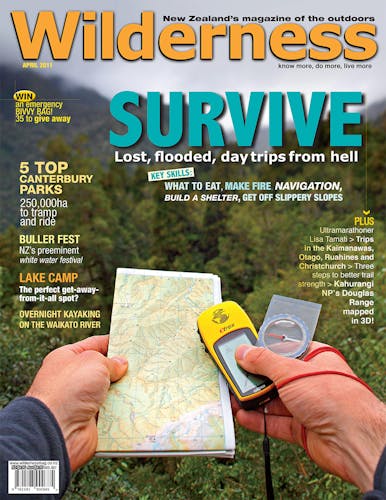Flashbacks, mood swings and disturbed sleep are all part of the emotional toll search and rescue volunteers pay, writes Josh Gale
Search and rescue operations can take a heavy toll on volunteers say veteran searchers Ross Gordon and Roger Bates.
Both men have been involved in search and rescue most of their lives and both admit it’s had an impact on them personally.
Gordon, 53, went on his first SAR operation when he was 15 and has been doing it ever since.
As a kid he loved hunting and exploring the great outdoors. Moving into search and rescue was a “natural progression”.
Gordon is now the SAR development manager and a course instructor for the Search and Rescue Institute of New Zealand, and he still goes on real operations.
“It can give huge satisfaction when you see a lost person reunited with their loved ones,” says Gordon. “You can’t buy a drug that is as good as seeing that happen. It’s just magic.”
But not all operations end happily and Gordon says many of them are “damned hard work and emotionally draining”.
Gordon was one of the team who found the bodies of six young soldiers who died on Mt Ruapeahu in a training exercise on August 12, 1990.
He says this is the “saddest operation” he has been involved in. “For a number of years I had flashbacks and sadness because those six young lives were lost,” he says.
A lack of sleep or disturbed sleep, flashbacks, mood swings and behavioural changes are problems Gordon says have affected him and other search and rescue personnel.
The most difficult cases, he says, are the ones when rescuers are unable to get a result, not even finding a body to allow friends and family of the deceased to grieve.
“If we get the person or the body back we can all move on,” says Gordon. “That’s why the motivation for success is really high because it’s not just us it’s the same for the families.”
Since he has been involved with search and rescue, Gordon says an important improvement has been the acceptance of the emotional effects of the job and a much greater openness to discuss them.
“The days of going 30 or 40 hours without a sleep on a search are gone,” says Gordon. Search and rescue people will only do a maximum of 12 hours a day, but eight hours is Gordon’s preference.
“Time away is a really good chance to sit back and reflect and that’s when you come up with bright ideas for when you get back on the search tomorrow.”
But veteran search and rescue volunteer Roger Bates says on his time away from a mission he can sometimes have trouble sleeping because he continues ticking the case over in his mind.
Bates, 67, is only one of four people to be made a life member of LandSAR and was awarded a New Zealand Order of Merit for his contribution to search and rescue.
In the last 50 years he has been involved in more than 300 search and rescue operations, including working as a police liaison person in Wellington at the time bodies were being recovered from the scene of the Erebus disaster.
Still a keen outdoors man, Bates lives in Turangi where he devotes his time to SAR operations at the managerial level.
He says people are affected differently by search and rescue missions.
“Some people keep it to themselves, others like talking about it over a cup of tea and some get counselling. Everyone’s different,” says Bates.








